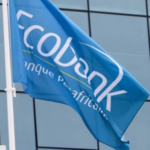The Federal Government has made a firm commitment to bridging the metering gaps and solving the financial liquidity challenges in Nigeria’s power sector.
This was revealed by the Special Adviser on Energy to President Bola Tinubu, Olu Verheijen, during her participation at the 2024 edition of CERAWeek by S&P Global in Houston, United States, according to nairametrics.
Verheijen outlined the government strategy of decentralising electricity transmission and exploiting different technologies to increase energy supply, especially for consumers with higher demand. She laid several number of innovative measures to derisk the power sector and stimulate investment, addressing the government’s fiscal constraints.
By adopting digital technology and smart meters, the initiative aims to transform 6 million customers into paying clients, thereby increasing revenue, enhancing the financial health of public utilities, and attracting further investment.
She highlighted the enormous investment needs identified by the International Energy Agency, which estimates a gap of $190 billion per year; stressing government is focusing on overcoming these budgetary difficulties by using tailored, creative solutions.
Also, Verheijen noted that closing the metering gap and resolving financial liquidity issues makes it possible to mitigate risks throughout the value chain, attract more capital to the grid, extend access, and foster greater electricity consumption, signifying a transformative phase for Nigeria’s power sector.
She said, “So, if you look at this scale of investments that are required, you know, some entities like IEA have estimated about $190 billion a year, we don’t have the fiscal space for that.
“So, what are we trying to do to make sure we can scale faster? We are making sure that we actually creatively target certain aspects that we think are catalytic to the rest of the entire value chain.
“So, we launched a presidential initiative recently. What are we using that to do? We say we need about $10 billion to double our transmission capacity, we don’t have that, but maybe we have a fraction of that and we can actually then make sure we procure metres, convert all of the 6 million customers that we currently have into paying customers with digital technology and smart meters and make sure we grow revenue that way.
“If we grow that revenue, then we’re able to make sure that we improve the financial viability of this public utilities and attract capital.
“So, that’s an example of how we’re being extremely strategic about the level of interventions that we have within our limited fiscal space.
“Once that is done and we have closed the metering gap, you have to address the financial liquidity issues, that tends to be. When you’ve de-risked that entire value chain, we can then have more capital to that grid and then expand access and grow consumption.”
Recall, that AMBusiness reported that the 11 power distribution companies (DisCos) secured a total amount of N53.3 billion in credit facility from the Central Bank of Nigeria’s National Mass Metering Programme.
The initiative drove Disco’s monthly revenue collection from N42 billion in 2020 to over N72 billion by the end of 2022, According to CBN data.










